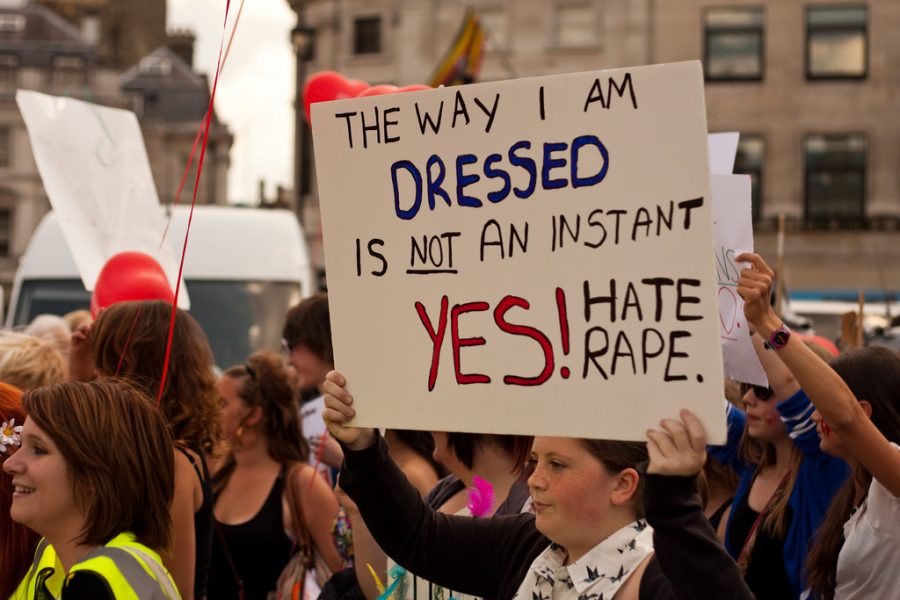“Victims are not victims, not some fragile, sorrowful aftermath. Victims are survivors, and survivors are going to be doing a hell of a lot more than surviving.”
These are the inspiring words of the woman who has only been known as “Emily Doe,” but whose story caused the change of rape laws in California.
On Jan. 18, 2015, Brock Turner was found sexually assaulting Doe as she lay unconscious behind a dumpster. The surprising thing, however, is that Turner was not just some brute from the streets or some uncivilized lowlife — he was a freshman student at Stanford and a valued athlete on their swimming team.
News of the rape sparked nationwide discussion, and the controversy quickly escalated when Turner was sentenced to only six months in jail by Judge Aaron Persky, who claimed a longer sentence would “have a severe impact on [Turner].” Doe has to spend the rest of her life living with what happened, while Turner lost only a couple of months of his summer.
Things only went downhill when Turner was released three months early from prison, because, according to the New York Post, he displayed “good behavior.” While California can put someone in jail for six months just for smoking marijuana, a rapist can get out in three months — calling the justice system “unjust” would be an understatement.
Doe, however, did not let that be the end. On Nov. 1, 2016 she submitted an essay to Glamour, documenting her experience.
Doe wrote, “From the beginning, I was told I was a best case scenario. I had forensic evidence, sober unbiased witnesses, a slurred voice mail, police at the scene. I had everything, and I was still told it was not a slam dunk. I thought, if this is what having it good looks like, what other hells are survivors living?”
Thankfully, there is a ray of hope on the horizon. Doe’s case was more than just another unfortunate event in a sea of similar ones — her case led to the change of rape laws in California.
“Rape is rape, and rapists like Brock Turner shouldn’t be let off with a slap on the wrist,” said Assemblyman Evan Low, who co-introduced the new rape laws. “While we can’t go back and change what happened, we can make sure it never happens again.”
With Doe’s case fresh in mind, the California’s State Assembly, led by Governor Jerry Brown, unanimously signed Assembly Bills 2888 and 701 into law. Before the bills were passed, California law stated that those convicted of raping and sexual assaulting a conscious adult or child would have to serve a prison sentence and would not be permissible for probation.
Because the laws did not include acts of rape committed on unconscious persons, Turner managed to get out of his already ridiculously short sentence. The two bills, which will go into effect on Jan. 1, 2017, will close this legal loophole, as well as add a mandatory three-year prison sentence for any case of rape.
As a woman, I welcome all laws that aim to prevent rape and punish those who commit it, and I find it wonderful that the two bills were passed. It’s hard to believe that there was even a time when California considered one type of rape to be lesser than another.
Hopefully, these two bills will lead to similar ones being passed in other states and maybe even nationwide someday. After all, nearly one in every five women in the United States report to have been sexually assaulted — it’s clear that we still have a lot of progress to make.
It’s also empowering to know that Doe’s voice and story was heard. After getting contacted by news organizations who wished to release her court statement, Doe’s message was spread all over the world and soon women were reaching out to her internationally. Vice President Joe Biden even sent her a letter, saying she was a warrior.
Really, Doe is not just a role model for sexual assault survivors; she is a role model for all women who have ever been oppressed and whose voice society chose to ignore.
Doe stayed strong despite going through one of the most degrading experiences someone can go through — she not only spoke out, but she spoke loud enough that her message was heard worldwide. Her voice even led to the change of rape laws in California, which will hopefully prevent other women from going through what she went through.
For that, Glamour named Doe “Woman of the Year,” and rightfully so.
Doe wrote, “So now to the one who said, I hope my daughter never ends up like her, I am learning to say, I hope you end up like me, meaning, I hope you end up like me strong. I hope you end up like me proud of who I’m becoming.”

